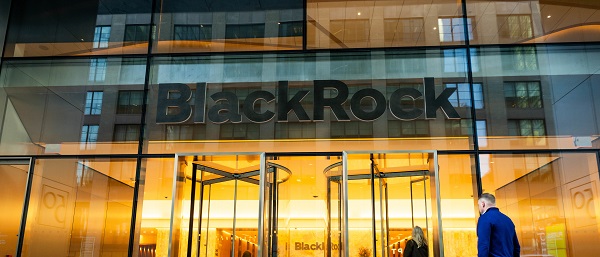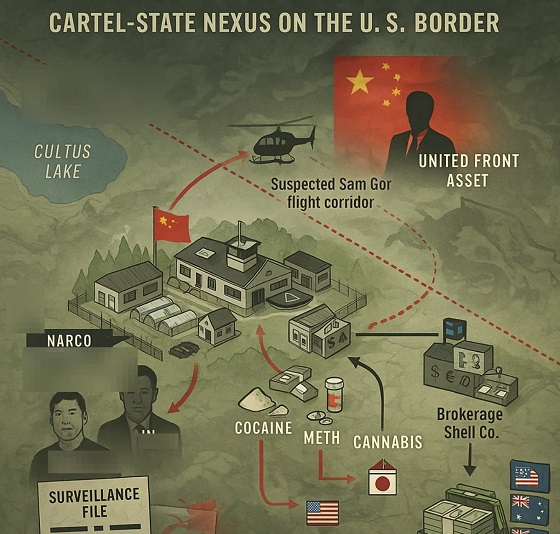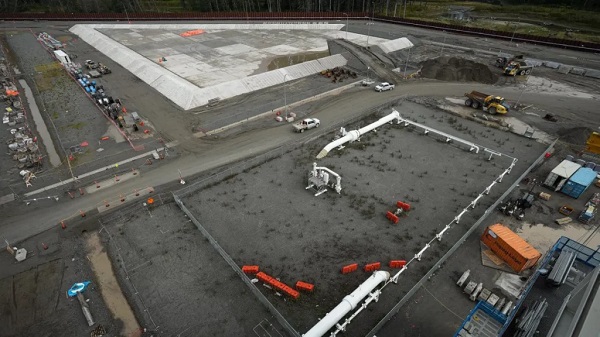Alberta
Pray for better days – a 3rd generation oil worker laments the end of an industry

by Sheldon Gron (published with permission)
I’ve been debating on whether or even how to write this over the last few weeks. I’m a third generation oilfield worker, a large portion of my family being involved with the oilfield in some way. Its sad to say, but I really truly honestly feel that the oilfield in Canada is officially dead. Sure there will be a little here and there, some guys will get a little work and even less will get consistent work, but all in all, to be an oilfield worker as a career is over. Nothing pains me more than to be saying this as I myself have over 20 years in the industry, an industry which I used to love and was proud to be apart of.
The industry has always worked in cycles, most of us know this. It was feast or famine. Best you could do was get the money while the gettin’ was good and save the best you could to prepare for the next slow down. Some were smart, most were not. Debt would ring up, slow down would hit and more debt would add up until bankruptcy loomed. Most slow downs lasted at most a year but usually turned around and guys would get 3 or 4 years of good times to recover and prepare for the next one. Take this most recent slow down in 2014. Writing was on the wall BUT no one expected it to hit as hard as it did. The world shook as oil prices fell to near 1998 prices. Within a few years though prices started to climb, enough so that work started to return. Not a ton, but enough that the guys left in the patch were finding work.
2018 there was finally some hope, there seemed to be some sort of light at the end of the tunnel but this whole pipe line mess loomed over us. You see Canadian Crude has always had its own value, lately a value significantly lower that everyone else due to our lack of infrastructure to get oil to market. With our current government and their apparently efforts to stop the much needed pipe line, Western Crude prices fell, investments pulled and companies lost faith… Canada is now suffering another oilfield crash, on top of the previous one. Heres the problem.
Anyone that has survived thus far is at the end of their rope. Toys are sold, saving have been spent to survive these last 4 years and now that another slow down is here, there is nothing to fall back on. Faith in the patch is gone as the hands and small businesses are in real trouble this time.
We are 8-10 year away from any of this ever turning around at the earliest, save some major event happening that sends oil to 200 a barrel. Lets face it, without a means to get our oil to market, no one wants it and who can blame them. Our government has severely let us down and 2019 is going to mean some serious trouble for Canada. I have done every thing I can to stick it out in the only career I know and don’t know how much longer I can go living pay check to pay check meanwhile being away from my family 25 days a month just to get by, and thats when I’m busy. If I was young and new to the oilfield I wouldn’t come anywhere near the oilfield as its apparent there is no future. You used to come here to make money, now, when you can actually get work, the money isn’t that great anymore.
I know some of you have very little sympathy for oilfield workers because you have always seen the money they have made but let me explain the repercussions of no oilfield in Alberta, Sask or Northern BC. Before the crash, entry level oilfield workers made over 100K a year. In order to do this they usually spent about 230-250 days a year away from their friends and families in all weather conditions working all sorts of hours. At times these conditions could be some of the most gruelling with sometimes not the nicest people. But it was a job and it paid well. That’s from their perspective. These same people that do this job pay 30% or more in taxes to our government. They pay more in taxes that many people make in an entire year, thats entry level, now take the people that are pulling in 200-250K. All that tax money is gone, no longer paying for schools and hospitals and roads and such. Now consider those lifted trucks and toys they buy with the money they earned with their oilfield money. All that money went to local businesses and local people that didn’t work in the oilfield. Salaries were paid, cloths were bought with that money those people earned from selling that truck or quad or what ever they buy.
Also consider the money they spent in the places they worked, supporting locally. Hotels, gas stations and grocery stores, restaurants and bars and so on. Alberta was successful and one of the richest provinces for one reason, OIL MONEY and now it is gone. Go to another have not province and ask them what its like to not have jobs and see what they think. Ask the number of people born across Canada that have come to Alberta for the Alberta Advantage why they came. Our Federal government had one mission regarding Alberta, and that was to bring it to its knees and we have let them do it. The oil field is dead and we let it happen. They panic cause 2500 of Ontarios people lost their jobs because GM shut down a plant yet 150K Albertans have lost their jobs and more are coming.
Alberta
Alberta’s oil bankrolls Canada’s public services

This article supplied by Troy Media.
 By Perry Kinkaide and Bill Jones
By Perry Kinkaide and Bill Jones
It’s time Canadians admitted Alberta’s oilpatch pays the bills. Other provinces just cash the cheques
When Canadians grumble about Alberta’s energy ambitions—labelling the province greedy for wanting to pump more oil—few stop to ask how much
money from each barrel ends up owing to them?
The irony is staggering. The very provinces rallying for green purity are cashing cheques underwritten not just by Alberta, but indirectly by the United States, which purchases more than 95 per cent of Alberta’s oil and gas, paid in U.S. dollars.
That revenue doesn’t stop at the Rockies. It flows straight to Ottawa, funding equalization programs (which redistribute federal tax revenue to help less wealthy provinces), national infrastructure and federal services that benefit the rest of the country.
This isn’t political rhetoric. It’s economic fact. Before the Leduc oil discovery in 1947, Alberta received about $3 to $5 billion (in today’s dollars) in federal support. Since then, it has paid back more than $500 billion. A $5-billion investment that returned 100 times more is the kind of deal that would send Bay Street into a frenzy.
Alberta’s oilpatch includes a massive industry of energy companies, refineries and pipeline networks that produce and export oil and gas, mostly to the U.S. Each barrel of oil generates roughly $14 in federal revenue through corporate taxes, personal income taxes, GST and additional fiscal capacity that boosts equalization transfers. Multiply that by more than 3.7 million barrels of oil (plus 8.6 billion cubic feet of natural gas) exported daily, and it’s clear Alberta underwrites much of the country’s prosperity.
Yet many Canadians seem unwilling to acknowledge where their prosperity comes from. There’s a growing disconnect between how goods are consumed and how they’re produced. People forget that gasoline comes from oil wells, electricity from power plants and phones from mining. Urban slogans like “Ban Fossil Fuels” rarely engage with the infrastructure and fiscal reality that keeps the country running.
Take Prince Edward Island, for example. From 1957 to 2023, it received $19.8 billion in equalization payments and contributed just $2 billion in taxes—a net gain of $17.8 billion.
Quebec tells a similar story. In 2023 alone, it received more than $14 billion in equalization payments, while continuing to run balanced or surplus budgets. From 1961 to 2023, Quebec received more than $200 billion in equalization payments, much of it funded by revenue from Alberta’s oil industry..
To be clear, not all federal transfers are equalization. Provinces also receive funding through national programs such as the Canada Health Transfer and
Canada Social Transfer. But equalization is the one most directly tied to the relative strength of provincial economies, and Alberta’s wealth has long driven that system.
By contrast to the have-not provinces, Alberta’s contribution has been extraordinary—an estimated 11.6 per cent annualized return on the federal
support it once received. Each Canadian receives about $485 per year from Alberta-generated oil revenues alone. Alberta is not the problem—it’s the
foundation of a prosperous Canada.
Still, when Alberta questions equalization or federal energy policy, critics cry foul. Premier Danielle Smith is not wrong to challenge a system in which the province footing the bill is the one most often criticized.
Yes, the oilpatch has flaws. Climate change is real. And many oil profits flow to shareholders abroad. But dismantling Alberta’s oil industry tomorrow wouldn’t stop climate change—it would only unravel the fiscal framework that sustains Canada.
The future must balance ambition with reality. Cleaner energy is essential, but not at the expense of biting the hand that feeds us.
And here’s the kicker: Donald Trump has long claimed the U.S. doesn’t need Canada’s products and therefore subsidizes Canada. Many Canadians scoffed.
But look at the flow of U.S. dollars into Alberta’s oilpatch—dollars that then bankroll Canada’s federal budget—and maybe, for once, he has a point.
It’s time to stop denying where Canada’s wealth comes from. Alberta isn’t the problem. It’s central to the country’s prosperity and unity.
Dr. Perry Kinkaide is a visionary leader and change agent. Since retiring in 2001, he has served as an advisor and director for various organizations and founded the Alberta Council of Technologies Society in 2005. Previously, he held leadership roles at KPMG Consulting and the Alberta Government. He holds a BA from Colgate University and an MSc and PhD in Brain Research from the University of Alberta.
Troy Media empowers Canadian community news outlets by providing independent, insightful analysis and commentary. Our mission is to support local media in helping Canadians stay informed and engaged by delivering reliable content that strengthens community connections and deepens understanding across the country.
Alberta
Alberta’s industrial carbon tax freeze is a good first step

 By Gage Haubrich
By Gage Haubrich
The Canadian Taxpayers Federation is applauding Alberta Premier Danielle Smith’s decision to freeze the province’s industrial carbon tax.
“Smith is right to freeze the cost of Alberta’s hidden industrial carbon tax that increases the cost of everything,” said Gage Haubrich, CTF Prairie Director. “This move is a no-brainer to make Alberta more competitive, save taxpayers money and protect jobs.”
Smith announced the Alberta government will be freezing the rate of its industrial carbon tax at $95 per tonne.
The federal government set the rate of the consumer carbon tax to zero on April 1. However, it still imposes a requirement for an industrial carbon tax.
Prime Minister Mark Carney said he would “improve and tighten” the industrial carbon tax.
The industrial carbon tax currently costs businesses $95 per tonne of emissions. It is set to increase to $170 per tonne by 2030. Carney has said he would extend the current industrial carbon tax framework until 2035, meaning the costs could reach $245 a tonne. That’s more than double the current tax.
The Saskatchewan government recently scrapped its industrial carbon tax completely.
Seventy per cent of Canadians said businesses pass most or some industrial carbon tax costs on to consumers, according to a recent Leger poll.
“Smith needs to stand up for Albertans and cancel the industrial carbon tax altogether,” Haubrich said. “Smith deserves credit for freezing Alberta’s industrial carbon tax and she needs to finish the job by scrapping the industrial carbon tax completely.”
-

 Business2 days ago
Business2 days agoThe ESG Shell Game Behind The U.S. Plastics Pact
-

 International2 days ago
International2 days agoBongino announces FBI will release files on COVID cover up, Mar-a-Lago Raid and more
-

 Great Reset1 day ago
Great Reset1 day agoThe WHO Pandemic Treaty could strip Canada of its ability to make its own health decisions
-

 Fraser Institute1 day ago
Fraser Institute1 day agoCarney government’s housing plan poses major risks to taxpayers
-

 espionage24 hours ago
espionage24 hours agoPro-Beijing Diaspora Group That Lobbied to Oust O’Toole Now Calls for Poilievre’s Resignation Amid PRC Interference Probes
-

 espionage18 hours ago
espionage18 hours agoOttawa Raises Alarm With Beijing Over Hong Kong Detention of CPC Candidate Joe Tay’s Family
-

 Health18 hours ago
Health18 hours agoRFK Jr. Says Trump Just Did What No Democrat Ever Had the Guts to Do
-

 COVID-192 days ago
COVID-192 days agoFreedom Convoy leader Tamara Lich to face sentencing July 23







